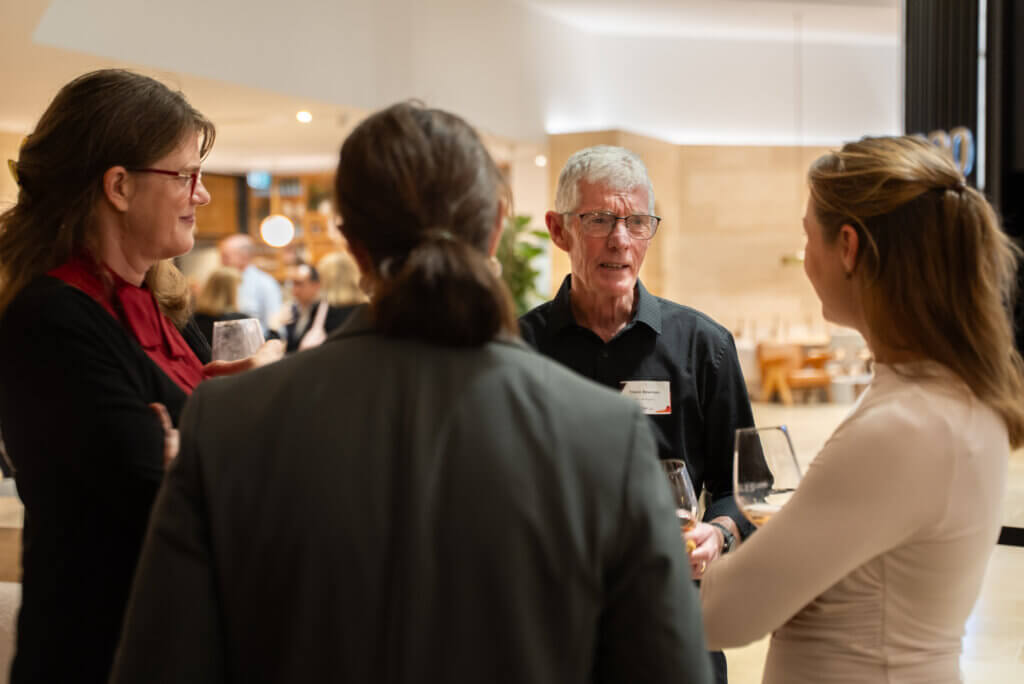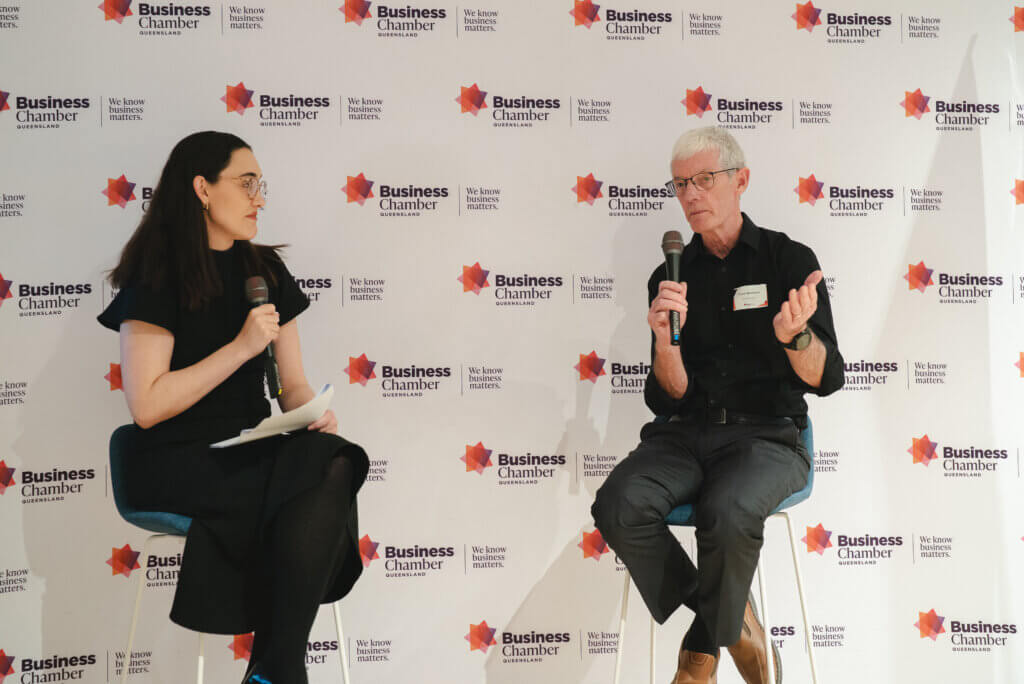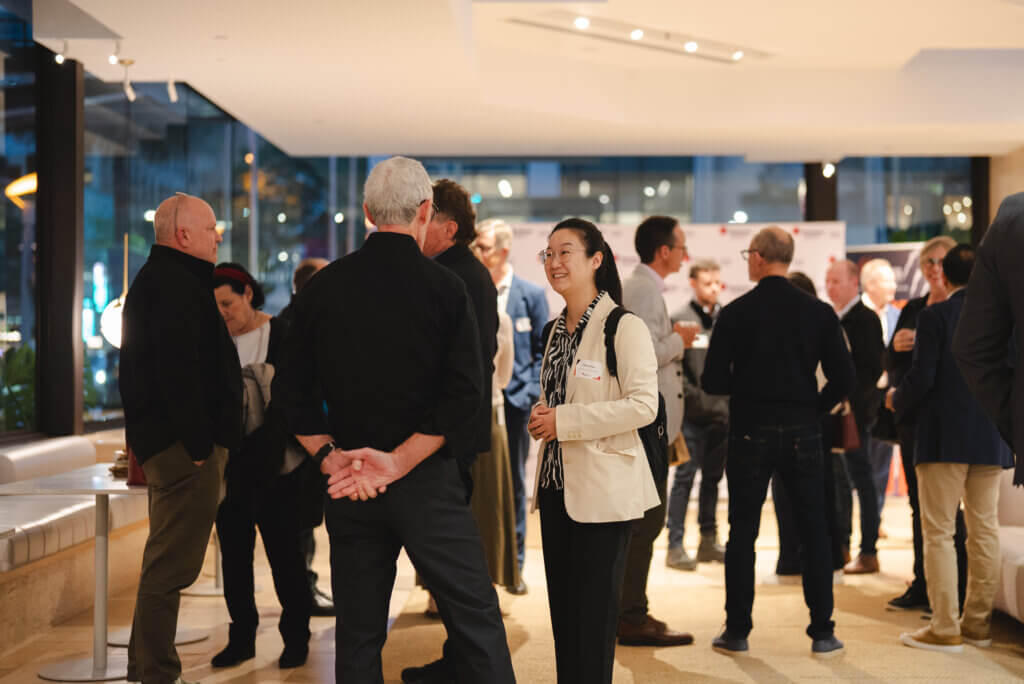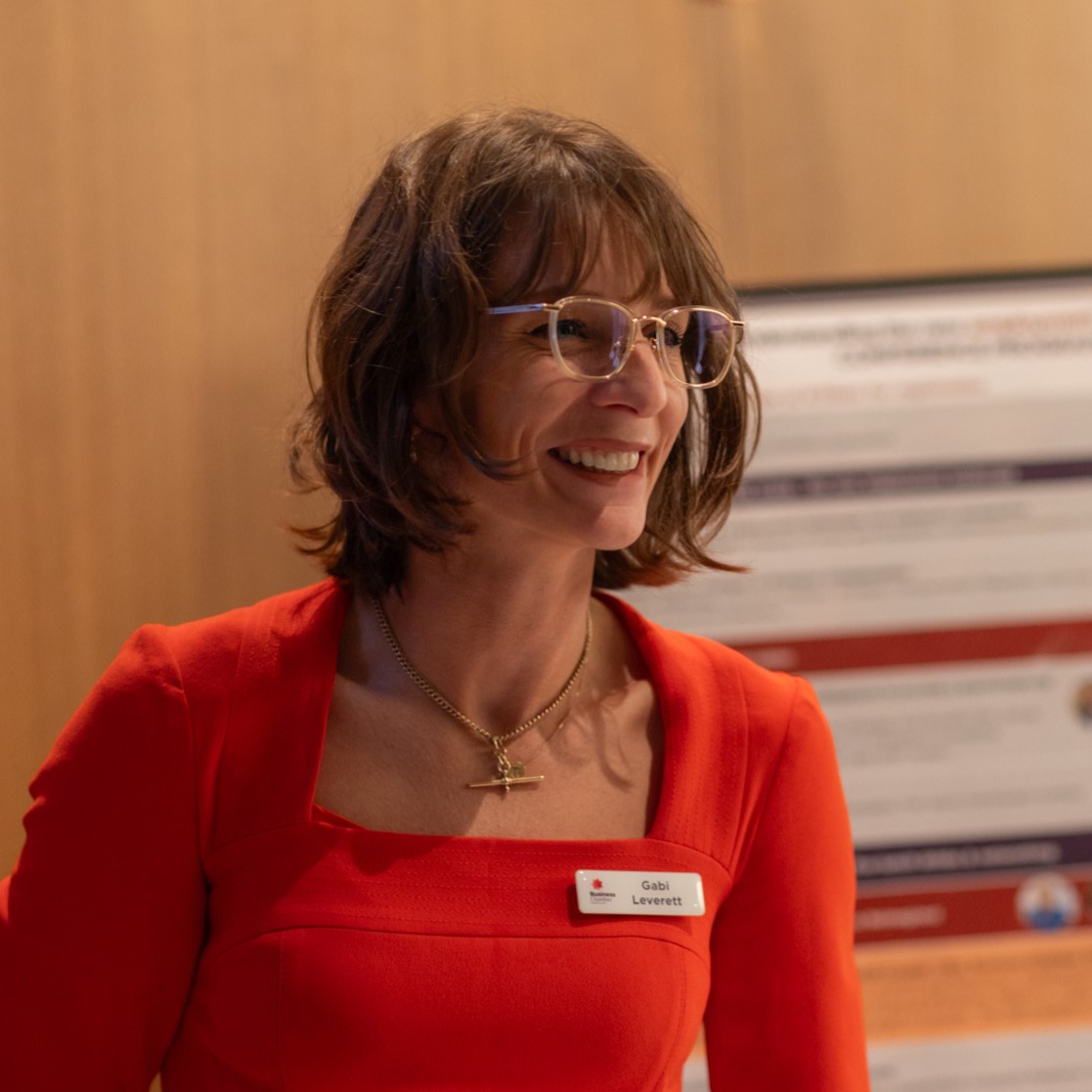In the lead up to the Brisbane 2032 Olympic and Paralympic Games, Queensland businesses face an unprecedented opportunity to secure contracts, partnerships, or participate in supply chains associated with Games preparation, delivery and legacy. However, the challenge for many businesses is to ensure they are prepared to take up this opportunity – whether that’s building a better understanding of the procurement process, clearly defining their product offering, or aligning with government and market expectations.
At our July Business Connect networking event in Brisbane, a member who’s had first-hand experience navigating this process – Play Hard Sports Equipment Owner and Product Designer, Trevor Bowman – sat down with Business Chamber Queensland’s Bonnie McCoy to share his experience.
In this Q&A blog, we’ve captured Trevor’s top insights and advice for businesses looking to participate in procurement for major events. 
We host several Business Connect events across Queensland each year featuring compelling speakers and the opportunity to build your network with like-minded professionals. Visit our events page to find out more.
Can you start with a bit of background on Play Hard Sports?
The business started through my lack of ability to play basketball. So, I’d go down to the local school at the weekends to practice and I found that the rings were either broken or missing, and later I designed a ring I thought would solve that problem.
I had a local spring maker help me build it and then joined the Inventor’s Association in New South Wales. There, I met a fellow inventor who took me over to the Chicago exhibition in the US where I met some basketball manufacturers who liked what they saw. From there one thing just led to another.
Now we have over 300 in-house manufactured products which are used by schools and venues in Australia and around the world – places like Sydney Olympic Park and Robina Stadium.
How have you managed to stay a step ahead of your competitors for so many years?
There was a lot of competition in this space when we started, so we decided we would make a point of difference with our products. Instead of having a number, we gave them a name – an identity – and we soon found we were no longer competing for the same opportunities because our opposition didn’t have products that were equivalent to ours.
We’ve also always focused on solving problems. So, when we’re talking to customers or talking to builders we listen closely because someone’s always got a problem and we want to be the ones to solve it.
You’re now known globally for your innovative designs, how important is that innovation when you’re supplying for major venues in particular?
In one instance, we won a contract specifically because we had a very unique item, so innovation is really important because if you have something unique to offer, that puts you in a really good position.
But what is also important is persistence. We got our hammer throw cages into the Commonwealth Games at the last minute by being persistent. We’d put in an expression of interest to the Games people years before and were intending to tender, but we hadn’t heard anything.
So, we reached out to them to find out about the quoting process and were told they were signing up an overseas supplier in the next couple of days. We went back to the organising committee and said, “you have to give us a chance”.
Our best idea to ensure we got the job was to rent the cages to them for a dollar each, then we would charge for our services to set up the cages. A dollar isn’t much, but after the Games we had two new customers lined up straight away. We were also on international TV and exhibited in Cologne which led to a UK agent and 25-odd cages across the UK.
It’s pretty amazing – to get into that supply chain we had to basically give them away initially but the pay off and the legacy has been huge in opening that international door. We didn’t go into the Games in the first place to make a financial gain, it was for the benefit we’d get out of it and what the future would look like for us. Our acceptance into one of the best venues signaled to the rest of the international community that we were the ones to work with.
It was also a good sign to the Australian community and the procurement teams that they can buy local and get an innovative product that can do the job better than the international suppliers.

Do you have any advice for small businesses looking to capitalise on these events who don’t have the capacity to deliver on the major contracts?
For smaller businesses, these major sporting events bring a lot more work through upgrades in the training facilities. All these countries are coming to compete here, but they also need to train in the lead up, as do our own athletes, so there’s plenty of work involved in building and upgrading smaller training facilities.
If you’re not getting anything for the Olympic and Paralympic Games, certainly look for all the training facilities that need upgrades, new equipment, or services going into the Games or any other major events.
Also, with our cages being accepted for the Commonwealth Games and through our involvement in it, we ended up procuring components from 50 different suppliers – the nuts and bolts and wheels and everything else – and those smaller suppliers were pretty much all from the Gold Coast.
That’s a great reason why the people running these big events should choose Australian manufacturers instead of overseas companies – all that additional money goes into the local community.
Is there any other opportunities that you didn’t foresee around partnerships or collaborations that that arose for you after being part of the Commonwealth Games?
We collaborated with a company in the United States to put in a tender to supply all the athletic equipment, with the proviso being that they use our cages. In that instance, we didn’t have the full range to be able to deliver on the tender and this US company had a track record of supplying the rest of the equipment to that level of event.
We didn’t win that one, but it was a good experience in identifying the kinds of opportunities we, as a smaller supplier, could partner with other businesses on.
Were there any unexpected or unforeseen challenges that you came across when supplying for a major event?
I think the biggest thing was that we had no idea of the amount of time it would take. We’d price things up based on the cost to make a product, deliver it and attend the event, but we didn’t have any idea about the time it really takes to fill out all the forms, attend different meetings and answer emails.
I was pretty much taken out of action in terms of BAU and my wife looked after all our regular customers while I was focused on the Games.
In one example, we had some team members setting up at a venue on the Gold Coast and they arrived at 4:30am with a trailer. To get through the gates the vehicle had to be scanned, and they ended up getting flagged because of a bag of lollies. This meant there were unexpected delays, and we had to pay our employees overtime.
I’ll reiterate if you’re looking for financial reward, you probably have the wrong focus. It’s more about the other benefits, including the fact that it will give your business confidence in having delivered a project at that level. It makes future ones easier and emboldens you to do new things.

Ahead of the Olympic and Paralympic Games in Brisbane, what is your advice for businesses who want to start preparing now?
Certainly, what I think businesses should be looking to do is demonstrate they’re a trustworthy and capable company – that they’re able to deliver on what they say. So as a business, you might want to tidy up the image you present and focus on the areas you know you’re really good at.
If you choose to collaborate with another business, typically the procurement teams only want to deal with one entity, so you need to know who in the partnership is going to put themselves forward and manage that relationship.
About Play Hard Sports Equipment
Play Hard Sports is known for its innovation in designing long-lasting, problem-solving sports equipment. Since 1993, Trevor has led the company from its Gold Coast base with a focus on high-quality, locally made products that meet the needs of stadiums, councils and schools. Today, the business boasts over 300 in-house manufactured products used across Australia and internationally, including by venues like Sydney Olympic Park, Robina Stadium, and the XXI 2018 Commonwealth Games, held on the Gold Coast.







